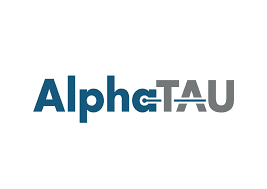Tech Transfer and Scaling Health and Climate Innovation Solutions
Climate Tech
In a world increasingly confronted with climate change effects and healthcare challenges, the transfer and scaling of innovative technologies are crucial for driving sustainability goals. Israel’s success in tech transfer offers a valuable blueprint for the global adoption of climate and health technologies, providing practical insights into how innovative solutions can be implemented across geographical and socio-economic contexts.
The Role of Tech Transfer
Technology transfer involves sharing innovative solutions developed in academic and research environments. It’s about adapting and scaling these solutions to effectively meet local needs. Scaling innovation is essential for amplifying the impact of these solutions and ensuring they address vast and varied needs.
Technology transfer is critical in the global response to environmental and climate challenges. It facilitates innovative solutions that can reduce greenhouse gas emissions, enhance energy efficiency, and support sustainable development.
Transferring medical technologies, pharmaceutical innovations, and healthcare management systems is crucial in the healthcare sector for improving patient outcomes, enhancing the quality of care, and making healthcare more accessible and affordable.
Leveraging Israel’s Experience in Tech Transfer
Israel, known as the “Startup Nation,” is a leader in technology transfer from academic and research institutions to industrial applications worldwide. This success is backed by real-world examples of Israeli innovations that have been successfully transferred and scaled worldwide. The country’s research institutions, startups, and industry partnerships contribute to a robust ecosystem supporting effective tech transfer.
One of Israel’s strengths is adapting climate technology solutions from the lab to diverse contexts, ensuring they are not only technologically advanced but also culturally and environmentally appropriate. The country’s contribution to global health tech through technology transfer is multifaceted, involving innovative technologies, international collaborations, and a dynamic ecosystem that supports continuous innovation.
Why Investors Should Pay Attention to Israel
- Innovative Edge: Israeli tech transfers are at the forefront of climate and health technology, offering cutting-edge solutions with the potential for high returns.
- Global Scalability: The adaptability of these technologies to various global contexts ensures a wide market reach and scalability.
- Attractive Valuations: Current macroeconomic shifts and local conditions have led to attractive valuations in the tech sector, presenting a prime investment opportunity.
- Sustainability and Impact: Investing in climate technology aligns with growing sustainability and social responsibility trends, appealing to a broader base of impact-focused investors.
Examples of Successful Israeli Tech Transfer

ImaginDairy creates animal-free dairy products using precision fermentation technology, producing milk proteins through microflora.
- Background: Based on 15 years of research spearheaded by Prof. Tuller from Tel Aviv University, ImaginDairy creates non-animal versions of whey and casein proteins essential for replicating various dairy products. Operating from Yokne’am, the research team consists of 30 multidisciplinary experts specializing in microbiology, computational systems, and biotechnology. The Kitchen FoodTech hub, based in Israel, backs the company.
- Global Impact: With the growing demand for plant-based and alternative dairy products, ImaginDairy’s technology could revolutionize the dairy industry and address environmental and ethical concerns. The startup has successfully secured $28 million in seed funding from various investors, including Target Global, Strauss Group, Emerald Technology Ventures, Green Circle Foodtech Ventures, Collaborative Fund, and New Climate Ventures.
- Background: Alpha Tau Medical, founded in 2016 by CEO Uzi Sofer, is dedicated to developing and commercializing Alpha DaRT™ (Diffusing Alpha-emitters Radiation Therapy), an invention by Professors Itzhak Kelson and Yona Keisari from Tel Aviv University. The company aims to bring this innovative alpha radiation technology to cancer patients globally. Alpha Tau is currently conducting several clinical and pre-clinical studies in partnership with various medical and educational institutions worldwide.
- Global Impact: Alpha DaRT is undergoing clinical trials worldwide. It offers a new treatment option for various cancers and could significantly improve cancer treatment outcomes.

Aleph Farms is an Israeli cellular agriculture company founded in 2017 specializing in food technology.
- Background: Aleph Farms produces meat directly from animal cells, offering a sustainable and ethical alternative to traditional meat production. Co-founded in 2017 by Prof. Shulamit Levenberg and Didier Toubia, Aleph Farms is based in Rehovot, Israel. The company’s foundation is deeply rooted in university research, particularly from the Technion – Israel Institute of Technology, on tissue engineering and regenerative medicine, and developed in partnership with “The Kitchen,” a food tech incubator from the Strauss Group Ltd.
- Global Impact: Addressing global concerns about food security, animal welfare, and environmental impact, Aleph Farms is scaling up production and collaborating with regulatory agencies worldwide to bring its products to the international market.

Copaxone (Teva Pharmaceutical Industries) is the leading medication for managing multiple sclerosis, benefiting patients worldwide.
- Background: Copaxone is a medication for treating multiple sclerosis, marking a significant development in neurology and autoimmune diseases. Copaxone (copolymer-1) has a remarkable development history spanning nearly three decades, culminating in its FDA approval in December 1996. This journey from laboratory synthesis to an FDA-approved drug for MS reflects scientists’ and clinicians’ persistence, perseverance, and collaborative efforts over several decades.
- Global Impact: As one of the most widely prescribed treatments for multiple sclerosis globally, Copaxone has not only benefited patients worldwide but also positioned Israel as a leader in pharmaceutical innovation.
Strategies for Global Adoption of Climate Solutions
Adopting technologies on a global scale involves more than just the transfer of hardware or software. It requires a holistic approach incorporating strategic elements to ensure these solutions’ successful and sustainable implementation:
- Capacity Building and Knowledge Transfer
Successful implementation of scaled solutions requires capacity building and knowledge transfer. Communities and countries need the skills and knowledge to use, maintain, and develop these technologies, ensuring sustainability and adaptability to local conditions.
- Public-Private Collaborations
Collaborations between governments, private sector entities, and research institutions are crucial in accelerating tech transfer. These partnerships provide funding, expertise, and infrastructure to support the adoption and scaling of solutions, navigating regulatory landscapes, and gaining public acceptance.
- International Collaborations and Networks
International collaborations and networks are pivotal in sharing best practices and facilitating the transfer of climate and health solutions. They bridge the gap between countries with advanced technologies and those in need, providing a platform for exchanging ideas, fostering innovation, and building long-term cooperation.
- Long-term Viability and Sustainability
Ensuring transferred climate solutions’ long-term viability and sustainability involves technological robustness, economic feasibility, and social acceptability. Solutions must be cost-effective and environmentally friendly to ensure widespread adoption and maintenance.
Israel as a Model for Tech Transfer Success
Technology transfer and scaling are vital in confronting global climate challenges. By drawing insights from Israel’s tech transfer experiences, we can foster global collaboration and accelerate the adoption of innovative climate solutions. These solutions must be adaptable to diverse contexts, supported by robust capacity building, and sustained through public-private and international collaborations. As we address climate change, the global community must unite to share, adapt, and scale innovative solutions, ensuring a sustainable future for all.
At Startup Nation Central, our team of experts forges strategic partnerships. It advances collaboration between global entities and Israel’s tech ecosystem of impatient innovators, creating ideal conditions for high-potential investment. This way, real climate and health solutions can be tested, adopted, and scaled. Climate change targets can be met to ensure future generations inherit a truly sustainable and livable world.
 Tech Ecosystem
Tech Ecosystem Human Capital
Human Capital Focus Sector
Focus Sector Business Opportunities
Business Opportunities Investment in Israel
Investment in Israel Innovation Diplomacy
Innovation Diplomacy Leadership Circle
Leadership Circle Our Story
Our Story Management Team
Management Team Careers
Careers